Premium Only Content

Other Worlds: The Turner Diaries Chapter 13
Chapter Thirteen.
March 21, 1993. Today a new beginning. Quite a coincidence that
it's the first day of spring. For me it is like a return from the dead-
470 days of living death. To be back with Katherine, back with my
other comrades, able to resume the struggle again after so much
wasted time-the thought of these things fills me with an
indescribable joy.
So much has happened since my last entry in this diary (how glad
I am that Katherine was able to save it for me!) that it's difficult to
decide how to condense it all here. Well, first things first.
It was about four o'clock in the morning, pitch dark, a Sunday. We
were all sound asleep. The first thing I remember is Katherine
shaking me by the shoulder, trying to wake me up. I could hear an
insistent buzzing in the background, which, in my sleep-fogged
condition, I assumed was our bedroom alarm clock.
"Surely, it's not time to get up yet," I mumbled.
"It's the warning buzzer downstairs," Katherine whispered
urgently. "Somebody's outside the building."
That snapped me awake, but before I could even get my feet on
the floor, there was a loud crash, as something trailing a stream of
sparks came hurtling through the carefully boarded-up bedroom
window. Almost immediately the room was filled with a choking
cloud of gas, and I was gasping for breath in agony.
The next couple of minutes are a little hazy in my memory.
Somehow we all got our gas masks on without turning on any
lights. Bill and I raced downstairs, leaving Katherine and Carol to
man the upstairs windows. Fortunately, no one had yet tried to
enter the building, but as Bill and I reached the bottom of the stairs
we could hear someone outside with a bullhorn ordering us to
come out with our hands up.
I took a quick look through our peephole. The darkness outside
had been turned bright as day by dozens of searchlights, all trained
on our building.
The glare kept me from seeing much of anything beyond the lights, but it was instantly clear that there were several
hundred troops and policemen, with lots of equipment, out there.
It was obviously futile to attempt to shoot our way out, but we
laid down a brief barrage anyway-half-a-dozen quick shots each-
from the upstairs and downstairs windows, front and back, just to
discourage the people outside from attempting to force a quick
entry into the building. After that, we all stayed clear of the
windows and doors, which were immediately riddled with a
withering return fire, and concentrated on getting as much of our
essential equipment out through our escape tunnel as we could.
The cement-block walls of the garage offered protection from the
small-arms fire being sprayed at us from every direction.
Bill, Katherine, and Carol relayed our gear down the long, dark
tunnel, while I stayed in the shop and gathered together for them
the things I thought we should try to save. In a frantic and
exhausting three-quarters of an hour, they assembled a small
mountain of armaments and communications equipment in the
drainage ditch at the far end of the tunnel.
Although the three of them did most of the carrying, at least they
were not in danger of being shot. I had bullets whistling around my
ears the whole while, and I was stung at least a dozen times by
splinters of concrete chipped from the walls by ricochets. I still
don't understand how I avoided being killed. I even managed to
fire a few rounds back through the door at our attackers every five
minutes or so, just to keep them under cover.
Finally we had gotten out all our small arms and ammunition,
about half our bulk explosives and heavier weapons, and all the
completed communications units. Bill's tools were saved, because
he has the tidy habit of keeping them all together in a tool box, but
we abandoned most of my test equipment, because it was scattered
all over the shop.
We huddled briefly in the grease pit and decided that Bill and the
girls would steal a vehicle and load our things into it while I stayed
in the shop and prepared a demolition charge that would cover the
entrance of our escape tunnel. I would give them 30 minutes, then I would light the fuse and make my own exit.
Katherine broke away and ran quickly back upstairs, where she
grabbed some of our personal items-including my diary- and then I
shooed her back into the tunnel with the others for the last time.
The downstairs doors and the boards over the windows were
about half shot away by this time, and so much light was coming
into the shop from the searchlights that any movement was
becoming extremely hazardous. Working with nervous haste, I
assembled a 20-pound charge of tritonal in the grease pit, just
above the tunnel entrance, and primed it.
Then I crawled along the floor, heading for the wall where
approximately another 100 pounds of tritonal was stacked in small
containers. I intended to run a length of primacord from that batch
to the charge in the grease pit, so that the whole shop would go up
in one blast, thoroughly covering everything in rubble. It would
take the cops a couple of days to sift through the debris and
discover that we had escaped.
But I never made it to the wall. Somehow-I still don't understand
exactly what happened-the charge in the grease pit exploded
prematurely. Perhaps a ricocheting bullet hit the primer. Or
perhaps sparks from one of the tear gas grenades which were still
being lobbed into the place ignited the fuse. In any event, the
concussion knocked me cold-and very nearly killed me. I regained
consciousness on an operating table in a hospital emergency room.
The next few days were extraordinarily painful ones. I wince at
the memory. I was taken directly from the emergency room to an
interrogation cell in the sub-basement of the FBI building, which
was still only partially cleared of the rubble from our bombing
seven weeks earlier.
Although I was still disoriented and in extreme pain from my
wounds, I was handled very roughly. My wrists were tightly
handcuffed behind me, and I was kicked and punched whenever I
stumbled or failed to respond fast enough to an order. Forced to
stand in the center of the cell while half-adozen FBI agents shouted
questions at me from all sides, I could hardly do more than mumble incoherently, even if I had wanted to cooperate with them.
Even in my agony, however, I felt a surge of elation when I
realized from my interrogators' questions that the others must have
gotten away safely. Over and over again the men around me
screamed out the same questions: "Where are the others? How
many were in the building with you? How did they get out?"
Apparently, the charge in the grease pit had successfully
obliterated the tunnel entrance. The questions were punctuated
with repeated slaps and kicks, until I finally sagged to the floor,
mercifully unconscious again.
When I came to, I was still lying where I had fallen, on the bare,
concrete floor. The light was on, no one else was in the room, and I
could hear the chattering of pneumatic hammers and other sounds
being made by repairmen working in the corridor beyond my cell
door. I ached all over, with the handcuffs causing me particular
agony, but my head was nearly clear.
My first thought was one of regret that I no longer had my poison
capsule. The secret police, of course, had taken my little necklace
away as soon as they had found my unconscious body in the
wreckage of the garage. I cursed myself for having failed to take
the precaution of carrying the capsule in my mouth before the
explosion. Probably it wouldn't have been found there, and I could
have bitten it as soon as I woke up in the hospital. In the days to
come, this regret was to recur again and again.
My second thought was also one of regret and self-recrimination.
I was tormented by a suspicion so strong that it nearly amounted to
certainty that my ill-advised visit to Elsa two days earlier was
responsible for my predicament. Evidently, someone from Elsa's
group had followed me home and then had informed on me. This
suspicion was later confirmed indirectly by my captors.
I was alone with my aches and somber thoughts for only a few
minutes before my second interrogation session began. This time
two FBI agents came into my cell, followed by a physician and
three other men, two of the last three being large, muscular-looking Negroes.
The third man was a stooped, white-haired figure of
about 70. A nasty little smile flickered around the corners of his
coarse-looking mouth, which occasionally split into a leering grin,
revealing the gold caps on his tobacco-stained teeth.
After the physician had quickly checked me over, pronounced me
reasonably fit, and left, the two FBI agents jerked me to my feet
and then took up positions near the door. The session was turned
over to the sinister-looking fellow with the gold teeth.
Speaking with a thick Hebrew accent and a disarmingly mild,
professorial manner, he introduced himself to me as Colonel Saul
Rubin, of Israeli Military Intelligence. Before I could even wonder
what business a representative of a foreign government had
questioning me, Rubin explained:
"Since your racist activities are in violation of the International
Genocide Convention, Mr. Turner, you will be tried by an
international tribunal, with representatives from both your country
and mine. But first we need some information from you, so that we
can also bring your fellow criminals to justice at the same time.
"I understand that you were not very cooperative last night. Let
me warn you that it will go very hard for you if you fail to answer
my questions. I have had a great deal of experience over the last 45
years in extracting information from people who did not wish to
cooperate with me. In the end they all told me everything I wanted
to know, both the Arabs and the Germans, but it was a very
unpleasant experience for those who were stubborn."
Then, after a brief pause: "Ah yes, some of those Germans, back
in 194S and 1946-particularly the ones from the SS- were quite
stubborn."
The apparently satisfying recollection brought another hideous
grin to Rubin's face, and I could not suppress a shudder. I
remembered the horrible photographs one of our members who
was a former Army intelligence officer had shown me years ago of
German prisoners who had had their eyes gouged out, their teeth
pulled, their fingers cut off, and their testicles smashed by sadistic
interrogators, many wearing U.S. Army uniforms, prior to their conviction and execution by military courts as "war criminals. "
I wanted nothing so much as to be able to smash the leering
Jewish face before me with my fists, but my handcuffs would not
permit me that luxury. I settled for spitting into Rubin's face and
simultaneously aiming a kick at his crotch. Unfortunately, my stiff,
aching muscles ruined my aim, and my kick only caught Rubin's
thigh, sending him staggering back a couple of paces.
Then the two Negro orderlies seized me. Under Rubin's
instructions, they proceeded to give me a vicious, thorough, and
scientific beating. When they finished my whole body was a
throbbing, searing mass of pain, and I was writhing on the floor,
whimpering.
The subsequent interrogation sessions were worse-much worse.
Because a public "show trial" was planned for me, presumably in
the Adolf Eichmann manner, Rubin avoided the eye-gouging and
finger-cutting, which would have disfigured me, but the things he
did were fully as painful. (Note to the reader: Adolf Eichmann was
a middle-level German official during World War II. Fifteen years
after the war, in 39 BNE, he was kidnapped in South America by
Jews, flown to Israel, and made the central figure in an elaborately
staged, two-year propaganda campaign to evoke sympathy from
the non-Jewish world for Israel, the only haven for "persecuted"
Jews.
After fiendish torture, Eichmann was displayed in a
soundproof glass cage during a four-month show trial in which he
was condemned to death for "crimes against the Jewish people.")
For days at a time I was completely out of my mind, and, as
Rubin had predicted, I eventually told him everything he wanted to
know. No human being could have done otherwise.
During the torture sessions the two FBI agents who were always
present as spectators sometimes turned a bit pale-and when Rubin
had his two Black assistants thrust a long, blunt rod up into my
rectum, so that I was screaming and wriggling like a skewered pig,
one looked as if he were going to be sick-but they never raised an
objection. I guess it was much the same after World War II, when
American officers of German descent calmly watched Jewish torturers work over their racial brothers who had been in the
German army and likewise saw nothing amiss when Negro G.I.'s
raped and brutalized German girls. Is it that they have been so
brainwashed by the Jews that they hate their own race, or is it that
they are just insensitive bastards who will do whatever they're told
as long as they keep drawing their salaries?
Despite Rubin's exquisitely painful expertise, I am now
thoroughly convinced that the Organization's interrogation
techniques are much more effective than the System's. We are
scientific, whereas the System is merely brutal. Although Rubin
broke my resistance and got answers to his questions, fortunately
he failed to ask many of the right questions.
When he had finally finished with me, after nearly a month-long
nightmare, I had told him the names of most of the members of the
Organization that I knew, the locations of their hideouts, and who
had been involved in various operations against the System. I had
described in detail the preparation for the bombing of the FBI
building and my role in the mortar assault on the Capitol. And, of
course, I explained exactly how the other members of my unit had
escaped capture.
All these disclosures certainly caused problems for the
Organization. But since they were able to anticipate exactly what
the political police would learn from me, they were able to nullify
any potential damage. Mainly it meant hastily abandoning several
perfectly good hideouts and establishing new ones.
But Rubin's interrogation technique elicited only information in
the form of answers to direct questions. He asked me nothing about
our communications system, and so he found out nothing about it.
(As I learned later, our legals inside the FBI kept the Organization
informed as to just what information my interrogation was
yielding, so we retained confidence in the security of our radio
communications.)
He also found out nothing about the Order or about our
philosophy or long-range goals, which knowledge might have helped the System understand our strategy. As it was, everything
Rubin got from me was of a tactical nature only. I believe the
reason for this to be the System's arrogant assumption that the task
of liquidating the Organization would be a matter of only weeks.
We were regarded as a major problem but not as a mortal danger.
After my period of interrogation was over, I was kept in the FBI
building for another three weeks, apparently in anticipation of
having me handy to identify various Organization members who
might be arrested on the basis of the information I had furnished.
None were arrested during this time, however, and I was
eventually transferred to the special prison compound at Fort
Belvoir where nearly 200 other Organization members and about
the same number of our legals were being held.
The government was afraid to put us into ordinary prisons
because of the danger that the Organization might free us-and also,
I suspect, because they were afraid we might indoctrinate other
White prisoners.
So all captured Organization members were taken
to Fort Belvoir from all over the country and kept in solitary-
confinement cells in buildings surrounded by barbed wire, tanks,
guard towers with machine guns, and two companies of MP's-all in
the center of an Army base. And there I spent the next 14 months.
What happened to the plans for my trial I cannot say.
Many people consider solitary confinement to be especially harsh
treatment, but it was a blessing for me. I was still in such a
depressed and abnormal frame of mind-partly the result of Rubin's
torture, partly from a sense of guilt at having yielded to that
torture, and partly just from being locked up and unable to
participate in the struggle-that I needed some time alone to
straighten myself out again. And, of course, it was nice not to have
to worry about Blacks, which would have been a real curse in any
ordinary prison.
No one who has not been subjected to the terror and agony to
which I was can understand the profound and lasting effect of such
an experience. My body has healed completely now, and I have
recovered from the peculiar combination of depression and nervous jitters with which my interrogation left me, but I am not
the same man I was. I am more impatient now, more serious-
minded (even somber, perhaps), more determined than ever to get
on with our task.
And I have lost all fear of death. I have not become more
reckless-less so, if anything-but nothing holds any terror for me
now. I can be much harder on myself than before and also harder
on others, when necessary. Woe betide any whining conservative,
"responsible" or otherwise, who gets in the way of our revolution
when I am around! I will listen to no more excuses from these self-
serving collaborators but will simply reach for my pistol.
All the time I and-the others were at Fort Belvoir we were
supposed to be incommunicado and were allowed no reading
material, newspapers or otherwise.
Nevertheless, we soon learned
how to communicate to a limited extent with one another, and we
established an oral news pipeline from the outside through our
guards, who were not an altogether unsympathetic lot.
The news we all wanted to hear, of course, was of the war
between the Organization and the System. We were especially
cheered up whenever there was news of a successful action against
the System-an "atrocity," in the jargon of the news media- and we
became depressed if the period between news of major actions
stretched to more than a few days.
As time passed, news of actions did become considerably less
frequent, and the media began predicting with greater and greater
confidence the imminent liquidation of the remnants of the
Organization and the return of the country to "normalcy. " That
worried us, but our worry was tempered by the observation that
fewer and fewer new prisoners were joining us at Fort Belvoir. An
average of one a day was being brought in when I first went there,
but that number had declined to less than one a week by August of
last year.
Then came the great Houston bombings of September 11 and 12,
1992. In two earthshaking days there were 14 major bombings,
which left more than 4,000 persons dead and much of Houston's industrial and shipping facilities smoldering wreckage.
The action began when a fully loaded munitions ship, carrying
aerial bombs to Israel, detonated in the crowded Houston ship
channel in the pre-dawn hours of September 11. That ship took
four others to the bottom of the channel with her, thoroughly
blocking it, and also set fire to an enormous refinery nearby.
Within an hour eight other massive explosions had occurred along
the ship channel, putting the nation's second-busiest port out of
business for more than four months.
Five later explosions closed the Houston airport, destroyed the
city's main power-generating station, and collapsed two
strategically located overpasses and a bridge, making two of the
most heavily traveled freeways in the area impassable. Houston
became an instant disaster area, and the Federal government rushed
in thousands of troops-as much to keep an angry and panic-stricken
public under control as to counter the Organization.
The Houston action won us no friends, but neither did it help the
government's case. And it thoroughly dispelled the growing notion
that our revolution had been stifled.
And, after Houston, there was Wilmington, then Providence, then
Racine. Actions were fewer than before, but they were much,
much bigger. It became apparent to us last fall that the revolution
had entered a new and more decisive phase. But more of that later.
Last night was the most important action of all for those of us at
Fort Belvoir. Just before midnight, as usual, two olive-drab buses
pulled up in front of the gate to our prison compound. Ordinarily
they bring in about 60 MP's for the midnight guard shift and take
away the evening shift. This time it was different.
My first inkling that a breakout was in progress came when I was
wakened by the sound of a machine gun being fired from one of
the guard towers. It was quickly silenced by a direct hit from the
105-mm gun on one of the four tanks in our compound. After that
there was intermittent small-arms fire and a lot of shouting and the
sound of running feet. Finally, the wooden door of my cell burst
inward under the blow of a sledgehammer, and I was free.I was one of the lucky 150 or so who squeezed into the two MP
buses and rode out in them. Several dozen others clung to the
outside of the four captured tanks, whose inattentive crews had
been the first targets of our rescuers.
The rest had to go on foot,
slogging through a downpour which providentially kept the Army's
helicopters grounded.
Altogether we lost 18 prisoners and four rescuers killed and 61
prisoners recaptured. But 442 of us-according to the news report
on the radio-made it to the waiting trucks outside the base, while
the tanks kept our pursuers at bay.
That wasn't the end of the excitement, but let it suffice to say that
by four o'clock this morning we had successfully dispersed to
more than two dozen pre-selected "safe houses" in the Washington
area. After a few hours rest, I slipped into a set of civilian work
clothes, took the set of false identification cards that had been
carefully and masterfully prepared for me, and, carrying a
newspaper and a lunch pail, made my way among the morning job-
goers to the rendezvous point I was assigned.
Within two minutes a pickup truck carrying a man and a woman
pulled up to the curb beside me. The door opened and I squeezed
in. As Bill drove off into the rush-hour traffic, I held my beloved
Katherine in my arms once again.
-
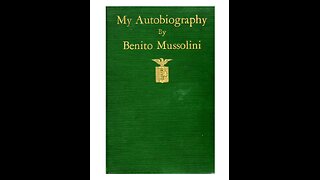 7:38:15
7:38:15
PukeOnABook
22 days agoMy Autobiography, By Benito Mussolini 1928. A Puke(TM) Audiobook
431 -
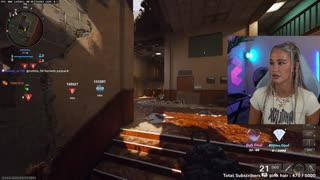 LIVE
LIVE
sophiesnazz
2 hours ago $1.22 earnedTIME TO WIND PEOPLE UP !socials
180 watching -
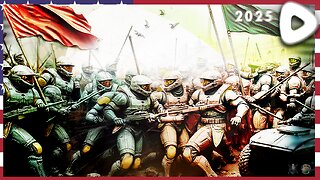 LIVE
LIVE
OhHiMark1776
2 hours ago🟢07-26-25 ||||| Halo Multiplayer Rumble: No. 16 ||||| Halo MCC (2019)
66 watching -
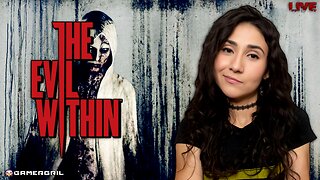 LIVE
LIVE
GamerGril
2 hours agoThe E-Gril Within | First Time Play Through | Saturday Spookfest
114 watching -
 18:22
18:22
Liz Wheeler
3 hours agoWhat Ghislaine Maxwell Knows
41010 -
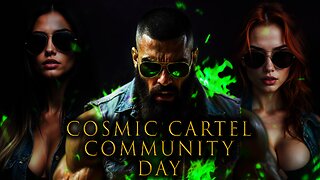 LIVE
LIVE
cosmicvandenim
5 hours agoWARZONE - Kenetik Energy Announcement - Discord Spy Bots
83 watching -
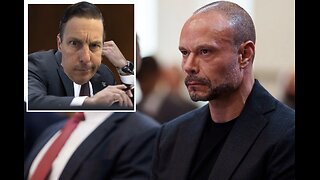 1:05:51
1:05:51
Jeff Ahern
3 hours ago $16.99 earnedThe Saturday Show with Jeff Ahern
93.6K10 -
 LIVE
LIVE
Misfit Electronic Gaming
1 hour ago"LIVE" RUMBLE HALO Spartans "Halo MCC" 23 Followers to go till we hit !000 RUMBLE TAKEOVER
21 watching -
 1:57:13
1:57:13
Film Threat
5 hours agoLIVE FROM SAN DIEGO COMIC-CON! (Saturday) | Film Threat Live
12.6K -
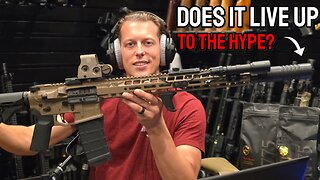 31:40
31:40
Tactical Advisor
3 hours agoEveryone Talks About This AR15 Being The Best? | Vault Room Live Stream 034
59.5K4